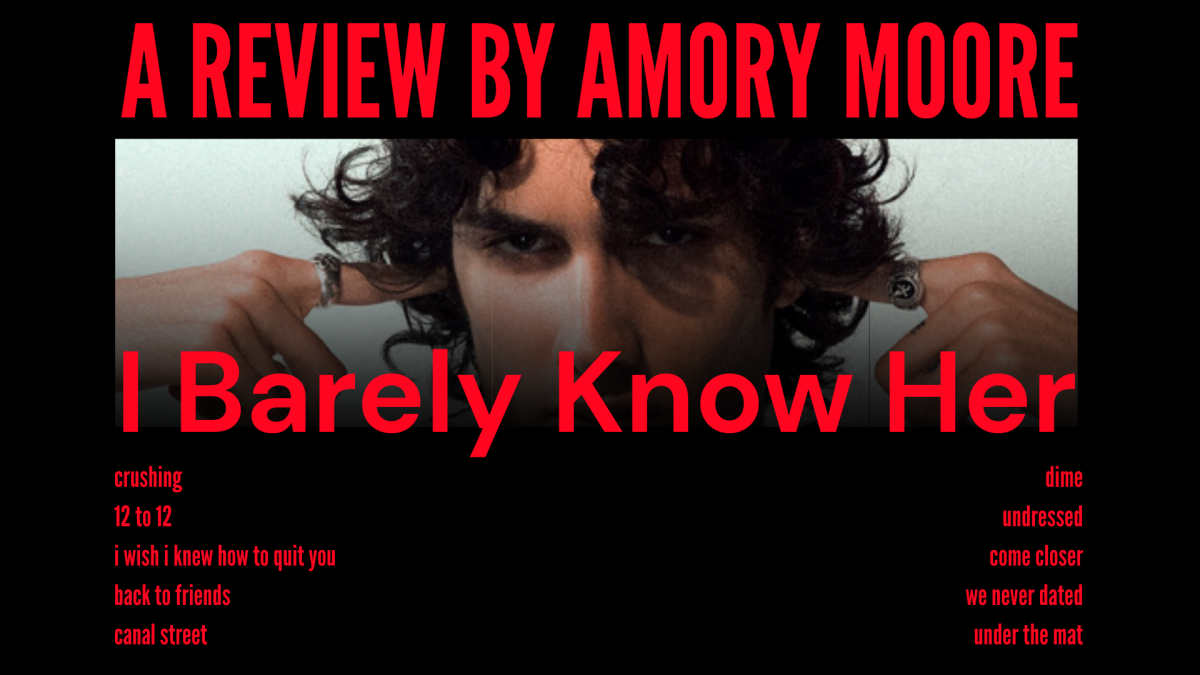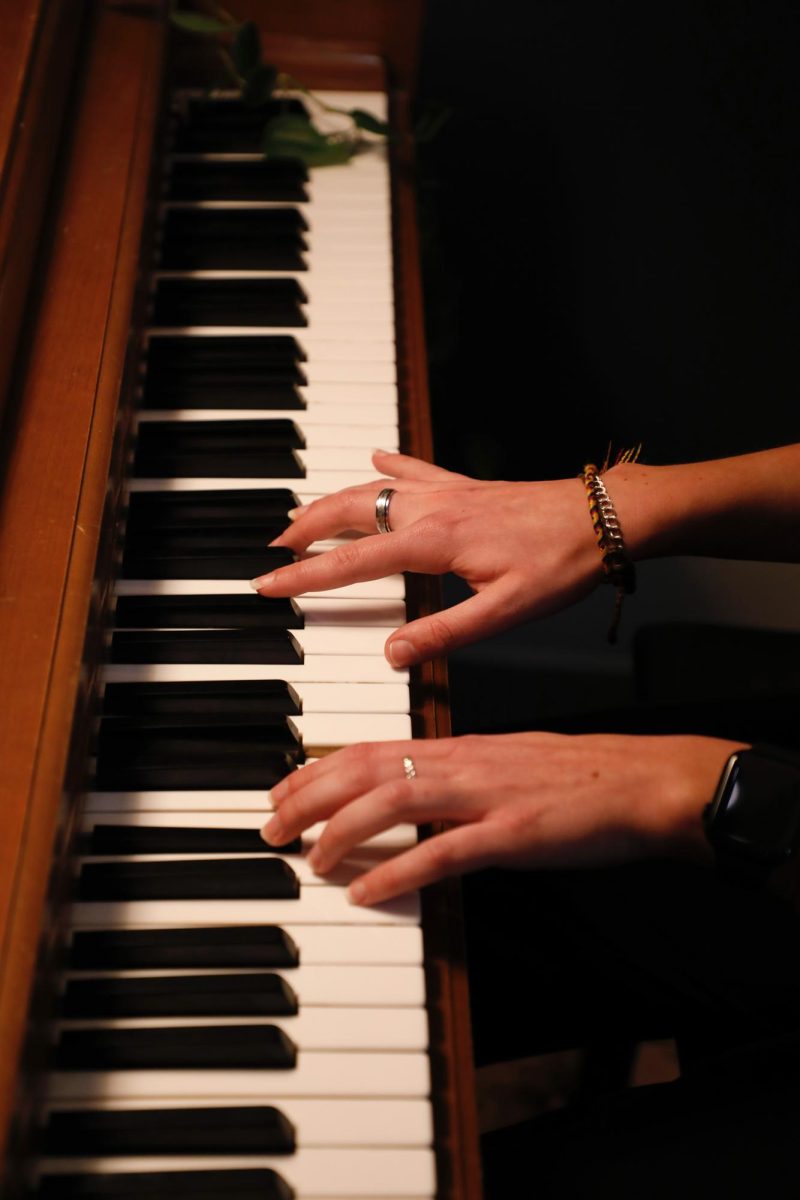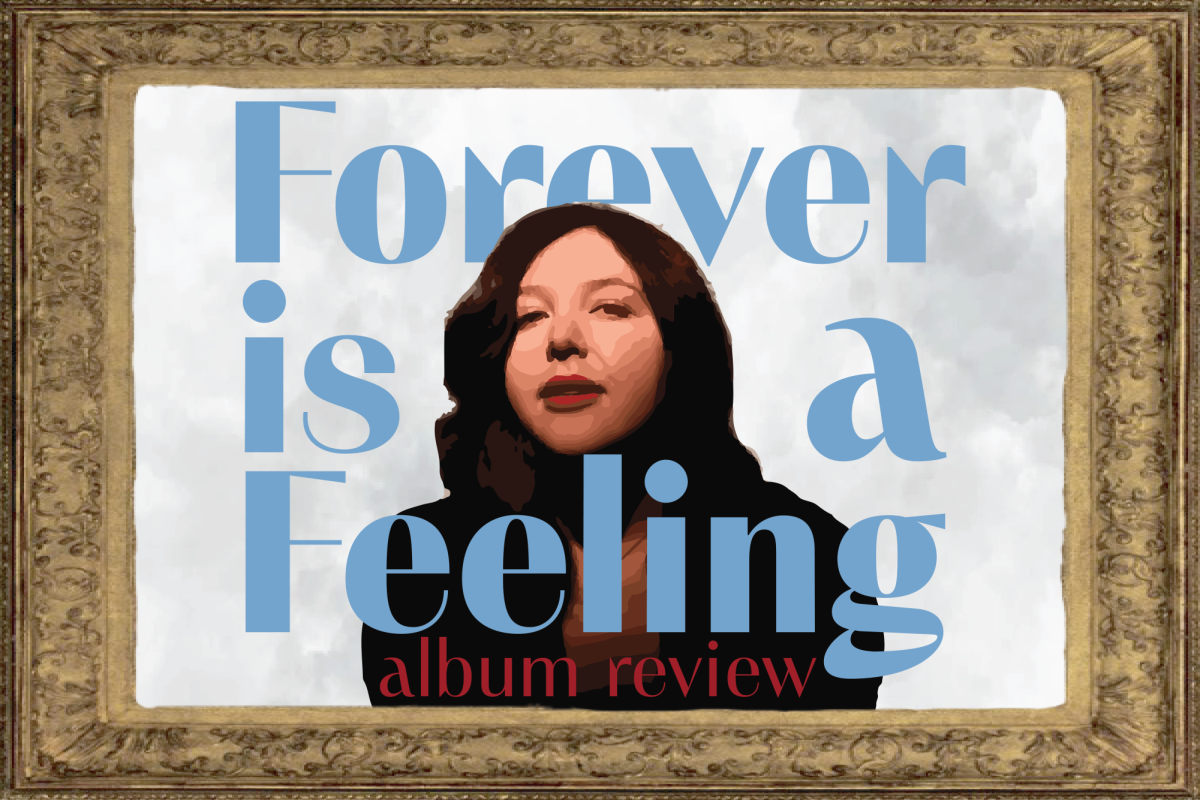Content Warning: This story mentions rape
The True/False Film Fest featured the 2021 Tândor Films production of “Delphine’s Prayers” at Stephens Lake Park on Sunday, May 9.
The entirety of the film takes place in a single cramped bedroom. In this room, the 30-year-old Delphine perches on her bed to share her life story to a single camera held by her friend, film director Rosine Mbakam.
Both Mbakam and Delphine moved from Cameroon to Belgium, where they formed a deep friendship with one another as mutual outsiders to a new, unfamiliar country. Delphine tells many dynamic stories in a blend of French and English in interview sessions that take place over a period of several days.
The documentary is intense, intimate and heavy. During the 90-minute runtime, viewers learn of the many hardships Delphine endured throughout her life. Her mother died in childbirth when Delphine was young. At 13, Delphine was raped and became pregnant with her first child. Delphine then turned to prostitution to support herself and her children. Now, Delphine resides in Belgium, married to a European man she does not love with the hope of a better life.
While this film did not boast the extravagances of a documentary with a large camera crew, I still found it to be an enthralling experience. I entered this film unsure of what to expect, but I found Delphine to be a superb storyteller. The audience, scattered about the field with blankets and chairs in 40-degree weather, was captivated. It felt like we were all seated across from Delphine herself as she shared her heartbreaking stories with us.
Another aspect of the film that was tremendously well done was the relationship and trust between Delphine and Mbakam. At the beginning of the film, Delphine expresses her wish for them to converse with the camera as they normally would: as old friends. This contributes greatly to the narrative of the film, as this trust fosters an environment where Delphine is comfortable and tells her story in the most natural way for her.
She is dynamic on the screen, expressing strong emotions and laughing often, occasionally stopping to smoke a cigarette or fix her hair. She is animated and often experiences sudden mood changes that escort viewers through the often tumultuous events within her story. Every emotion experienced by Delphine is expressed with passion; her storytelling carries the film with grace.
This isn’t to say that the film isn’t tremendously heavy. Delphine’s good nature only adds to the heartbreak of what she has been through. While watching the documentary, I found myself growing weary of the unceasing sadness of the story. As Delphine continues her narrative, it at times was hard to listen if only because of the sorrow she experienced.
That being said, I would recommend this film wholeheartedly. The emotional, uninterrupted approach gives viewers the chance to delve into vast topics like poverty and prostitution through the lens of a young woman who has experienced awful things because of them.
_Edited by Shannon Worley | [email protected]_







